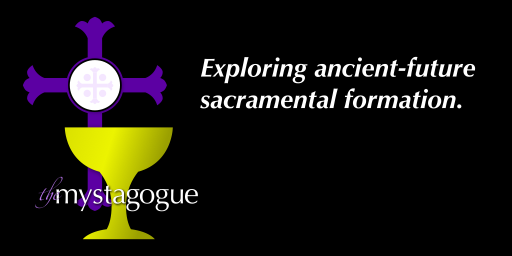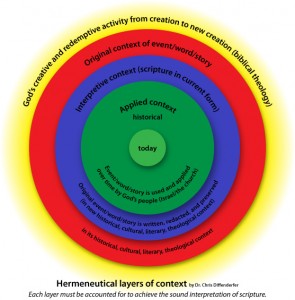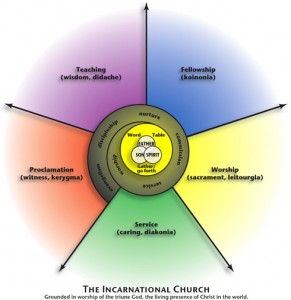The following are sources that I highly recommend (watch for frequent additions):
Benedict XVI. (2009). Charity in Truth. San Francisco: Ignatius Press, 2009.
Benedict XVI. God is Love. San Francisco: Ignatius Press, 2006.
Benedict XVI. (2008). Saved in Hope. San Francisco: Ignatius Press, 2008.
Browning, Robert L. and Roy A. Reed. The Sacraments in Religious Education and Liturgy. Birmingham, Alabama: Religious Education Press, 1985.
Cooke, Bernard. Sacraments and Sacramentality, revised ed. Mystic, Conn.: Twenty-Third Publications, 1994.
Emminghaus, Johannes H. The Eucharist: Essence, Form, Celebration. Translated by Linda M. Maloney. Collegeville, Minn.: The Liturgical Press, 1978. Reprint with new translation, Collegeville, Minn.: The Liturgical Press, 1992.
Guroian, Vigen. Ethics after Christendom: Toward and Ecclesial Christian Ethic. Eugene, Oregon: Wipf and Stock Publishers, 1994.
Guroian, Vigen. Incarnate Love: Essays in Orthodox Ethics, 2nd ed. Notre Dame: University of Notre Dame Press, 2002.
Hay, Leo. Eucharist: A Thanksgiving Celebration. Message of the Sacraments, ed. Monika K. Hellwig. Wilmington, Delaware: Michael Glazier, Inc., 1989.
Irwin, Kevin W. Models of the Eucharist. New York: Paulist Press, 2005.
Jones, Chelsyn, Geoffrey Wainwright, and Edward Yarnold, eds. The Study of Spirituality. New York: Oxford University Press, 1986.
Koenig, John. The Feast of the World’s Redemption: Eucharistic Origins and Christian Mission. Harrisburg, Penn.: Trinity Press International, 2000.
LaVerdiere, Eugene. The Eucharist in the New Testament and the Early Church. Collegeville, Minn.: The Liturgical Press, 1996.
McIntosh, Mark A. Mysteries of Faith. The New Church’s Teaching Series, ed. Cynthia Shattuck, vol. 8. Boston: Cowley Publications, 2000.
McIntosh, Mark A. Mystical Theology: The Integrity of Spirituality and Theology. Challenges in Contemporary Theology. eds. Gareth Jones and Lewis Ayres. Oxford: Blackwell Publishing Ltd, 1998.
Nouwen, Henri J. M. With Burning Hearts: A Meditation on the Eucharistic Life. Maryknoll, New York: Orbis Books, 1994.
Old, Hughes Oliphant. The Shaping of the Reformed Baptismal Rite in the 16th Century. Grand Rapids, Mich.: Wm. B. Eerdmans Publishing Company, 1992.
Peterson, Eugene H. Christ plays in Ten Thousand Places: A Conversation with Spiritual Theology. Grand Rapids, Mich.: William B. Eerdmans Publishing Company, 2005.
Schmemann, Alexander. Church, World, Mission: Reflections on Orthodoxy in the West. Crestwood, New Jersey: St. Vladimir’s Seminary Press, 1979.
Schmemann, Alexander. For the Life of the World: Sacraments and Orthodoxy. Crestwood, NY: St. Vladimir’s Seminary Press, 1973.
Schmemann, Alexander. The Eucharist: Sacrament of the Kingdom. Crestwood, NY: St. Vladimir’s Seminary Press, 1987.
Schmemann, Alexander. The Journals of Father Alexander Schmemann 1973-1983. Translated by Juliana Schmemann. Crest wood, NY: St. Vladimir’s Seminary Press, 2002.
Schmemann, Alexander. Liturgy and Tradition: Theological Reflections of Alexander Schmemann. Edited by Thomas Fisch. Crestwood, New York: St. Vladimir’s Press, 2003.
Schmemann, Alexander. Of Water and the Spirit: A Liturgical Study of Baptism. Crestwood, NY: St. Vladimir’s Seminary Press, 1974.
Sheldrake, Philip. Explorations in Spirituality: History, Theology, and Social Practice. New York: Paulist Press, 2010.
Sheldrake, Philip. Spirituality and History: Questions of Interpretation and Method. Marynoll, New York: Orbis Books, 1995.
Sheldrake, Philip. Spirituality and Theology: Christian Living and the Doctrine of God. London: Darton, Longman and Todd, Ltd., 1998.
Staples, Rob L. Outward Sign and Inward Grace: The Place of Sacraments in Wesleyan Spirituality. Kansas City: Beacon Hill Press of Kansas City, 1991.
Stookey, Laurence Hull. Baptism: Christ’s Act in the Church. Nashville: Abingdon Press, 1982
Stookey, Laurence Hull. Eucharist: Christ’s Feast with the Church. Nashville: Abingdon Press, 1993.
Taft, Robert. “How Liturgies Grow: The Evolution of the Byzantine Divine Liturgy.” OCP 43 (1977) reproduced in his collected essays, Beyond East and West. 2nd ed., Rome, 1997, 203-4. Quoted in Bradshaw, Paul F. The Search for the Origins of Christian Worship: Sources and Methods for the Study of Early Liturgy. 2nd ed. New York: Oxford University Press, 2002.
Vander Zee, Leonard J. Christ, Baptism and the Lord’s Supper. Downers Grove, Illinois: InterVarsity Press, 2004.
Webber, Robert E. The Divine Embrace: Rediscovering the Passionate Spiritual Life. Ancient-Future Faith Series. Grand Rapids, Mich.: Baker Books, 2006.
Wright, David F. “Augustine and the Transformation of Baptism.” In The Origins of Christendom in the West, ed. Alan Kreider, 287-310. New York: T&T Clark, 2001.


